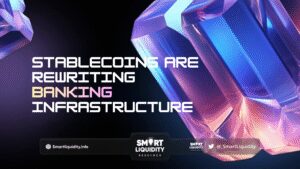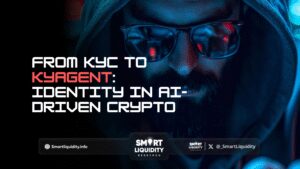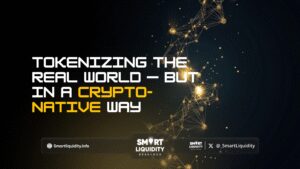GameFi: Merging Gaming and DeFi for Next-Level Virtual Economies


Blockchain and cryptocurrency’s dynamic evolution introduces a compelling trend: GameFi. GameFi transforms virtual economies, promising a revolutionary impact on the gaming industry. This article explores GameFi’s ascent, the play-to-earn revolution, its ties to the metaverse, key contributors, and future trends in this vibrant space.
The Rise of GameFi: Exploring the Emergence of Gaming in the DeFi Space
Over the past decade, decentralized finance has made significant strides in transforming traditional financial systems. But it wasn’t long before creative minds sought to merge this disruptive technology with the gaming world. The emergence of GameFi marks a new era where gamers can participate in decentralized financial systems while enjoying their favorite virtual experiences.
GameFi projects are built on blockchain technology, allowing users to gain real ownership of in-game assets and digital currencies, thanks to the immutability and transparency that blockchain offers. This innovative approach ensures that in-game items, currencies, and characters can be seamlessly integrated into the broader DeFi ecosystem.


Play-to-Earn Revolution: Transforming Gaming into Profitable Ventures
The fundamental concept behind GameFi is “play-to-earn.” Unlike traditional gaming, where players invest time and money without any tangible rewards, GameFi empowers players to turn their gaming skills into profitable ventures. Gamers can now earn rewards in the form of cryptocurrency, non-fungible tokens (NFTs), or other digital assets, transforming leisure time into a source of income.
By participating in GameFi projects, players can engage in tasks like completing quests, battling enemies, or trading virtual assets in exchange for valuable tokens. This not only bridges the gap between the gaming and financial worlds but also provides an opportunity for players to monetize their gaming experiences.
The Metaverse Connection: How GameFi Shapes the Future of Virtual Worlds
As the metaverse continues to gain momentum, GameFi plays an integral role in shaping the future of virtual worlds. With GameFi, players can seamlessly transfer their digital assets and progress between various games and virtual environments. This interoperability between games and metaverse platforms allows users to create a persistent identity across multiple virtual spaces, significantly enhancing the immersive experience.
Furthermore, GameFi can enable decentralized autonomous organizations (DAOs) to govern virtual worlds, ensuring that decision-making power is distributed among the player community. This not only creates a sense of ownership but also fosters a more democratic and user-driven metaverse.
GameFi Projects and Platforms: A Look at Key Players in the Space
Several innovative GameFi projects and platforms have emerged, each contributing to the growth and diversification of the space. Some of the key players include:
| GameFi Project & Platform | Description | Key Features |
| Axie Infinity | A turn-based RPG where players breed, raise, and battle creatures called Axies. | Play-to-earn model, NFT-powered assets, decentralized governance |
| Splinterlands | A card trading game where players collect, trade, and battle cards. | Play-to-earn model, NFT-powered assets, decentralized governance |
| The Sandbox | A voxel-based metaverse where players can build, own, and monetize their creations. | Play-to-earn model, NFT-powered assets, decentralized governance |
| Gods Unchained | A trading card game similar to Magic: The Gathering, with a focus on digital ownership and player governance. | Play-to-earn model, NFT-powered assets, decentralized governance |
| My DeFi Pet | A pet simulation game where players raise and care for their pets, and earn rewards based on their pet’s progress. | Play-to-earn model, NFT-powered assets, decentralized governance |
| Sorare | A fantasy football game where players collect and trade digital player cards, and earn rewards based on their cards’ performance in real-world matches. | Play-to-earn model, NFT-powered assets, decentralized governance |
| CryptoKitties | A breeding game where players breed digital cats called CryptoKitties, with the aim of creating rare and valuable offspring. | NFT-powered assets |
| Decentraland | A virtual world where players can buy and own land, build structures, and interact with other players. | NFT-powered assets, decentralized governance |
Table1. Examples of Popular GameFi Projects and Platforms
Future Trends in GameFi: What Lies Ahead for the Gaming and DeFi Fusion
As GameFi continues to gain momentum, several exciting trends are likely to shape its future:
Enhanced Interoperability: GameFi projects are expected to become increasingly interoperable, allowing players to seamlessly transfer assets and achievements between various games and metaverse platforms.
Expansion of Play-to-Earn: The play-to-earn model is likely to expand to a wider range of games and virtual environments, providing more opportunities for players to monetize their skills.
Integration of NFTs: Non-fungible tokens will continue to play a pivotal role in GameFi, serving as a bridge between virtual and real-world assets.
Governance by Players: More GameFi projects will adopt decentralized governance models, giving players a say in the development and direction of virtual worlds.
Mainstream Adoption: With the potential for profitable gaming, GameFi has the power to attract a broader audience, potentially bringing millions of new users into the crypto and blockchain space.
Conclusion
GameFi represents a fascinating fusion of gaming and DeFi, redefining the way we perceive virtual economies. The rise of play-to-earn, the connection to the metaverse, and the emergence of key players in the space are transforming gaming into profitable ventures. As GameFi projects continue to evolve, the future holds exciting promises, with enhanced interoperability, widespread adoption, and a more democratic approach to virtual worlds. GameFi is not just a trend; it’s a transformative force shaping the future of gaming and finance in virtual environments.




